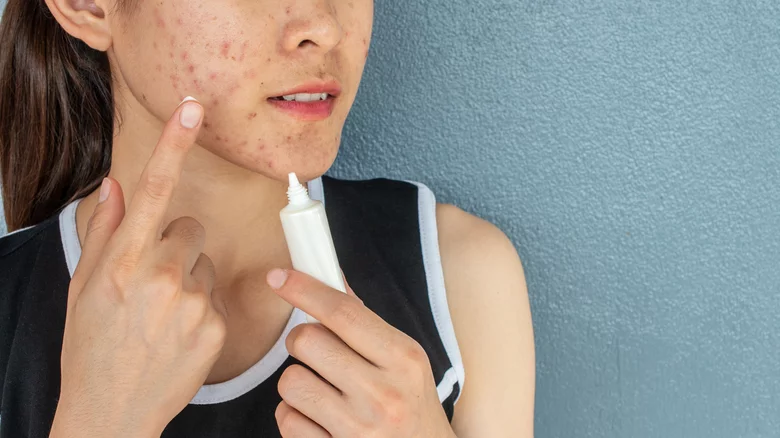If you have had difficulty becoming pregnant and are looking to increase your chances of conceiving, fertility treatments may be an option. According to the National Health Service (NHS) in the UK, there are three main types of fertility treatments: medications to stimulate ovulation, surgical procedures, and assisted conception techniques such as intrauterine insemination (IUI) and in vitro fertilization (IVF)
Though generally safe, fertility treatments can be a physically and emotionally taxing journey. Counting among the common side effects of fertility treatments include mood swings, depression, nausea, headaches, and breast tenderness, as well as ovarian hyperstimulation syndrome, per Medical New
Fertility treatments can cause changes in hormone levels that can lead to skin issues such as acne, puffiness, and redness. These changes are due to the use of synthetic hormones in fertility treatments, which can cause fluctuations in estrogen levels and trigger the formation of acne. People who have a history of acne flare-ups around their menstrual cycle may be more likely to experience acne during fertility treatments. To help manage and prevent acne during fertility treatments, you can try the following:
- Use a gentle, oil-free cleanser to wash your face twice a day
- Avoid picking or squeezing pimples, as this can cause further irritation and scarring
- Apply a non-comedogenic moisturizer to help keep your skin hydrated
- Use non-irritating makeup and skincare products
- Consult with a dermatologist for personalized skincare recommendations and potentially prescription acne medication.
What can be done to avoid getting acne while undergoing fertility treatments?

To avoid acne breakouts, it’s important to practice good skincare habits. This includes cleansing your skin twice a day, removing your makeup thoroughly, and exfoliating twice a week. These steps will help to remove dirt, oils, and other impurities that can clog your pores and lead to breakouts. If you have oily or acne-prone skin, it’s also important to use non-comedogenic sunscreens and moisturizers, as these products are less likely to clog your pores. Remember, taking preventive measures is key to keeping acne at bay.
To maintain healthy skin and reduce inflammation, it is advisable to avoid processed foods and choose non-dairy milk instead of regular milk. Cooking with organic oils such as olive, avocado, and macadamia nut oil can also be beneficial. Incorporating whole grains, healthy fats, fruits, vegetables, omega-3-rich fish, and low-fat poultry into your diet can support the health of your reproductive system and skin. Additionally, smoking and drinking alcohol can negatively impact the success of IVF treatments and harm the appearance of your skin, so it is best to avoid these habits during treatment.
What are some ways to address acne that is a result of fertility treatment?

There is a common misconception that acne treatment can interfere with fertility treatment. However, it is important to consider that leaving acne untreated can negatively affect both mental health and self-esteem, which can add additional stress during fertility treatment. Topical medications are usually the first choice for treating mild to moderate acne. These may include benzoyl peroxide, azelaic acid, glycolic acid, salicylic acid, or antibiotics such as erythromycin and clindamycin. It is important to speak with a healthcare professional about the appropriate treatment for your individual needs.
It is generally recommended to avoid using oral antibiotics such as tetracyclines, trimethoprim, and fluoroquinolones during pregnancy due to the risk of miscarriage. If you are experiencing acne and are trying to get pregnant, it is important to speak with a dermatologist before attempting any self-treatment or using over-the-counter acne products. Some active ingredients in acne products may interfere with pregnancy or fertility treatments and could potentially decrease the chances of becoming pregnant. It is always best to consult with a medical professional to ensure the safety and effectiveness of any treatment.



